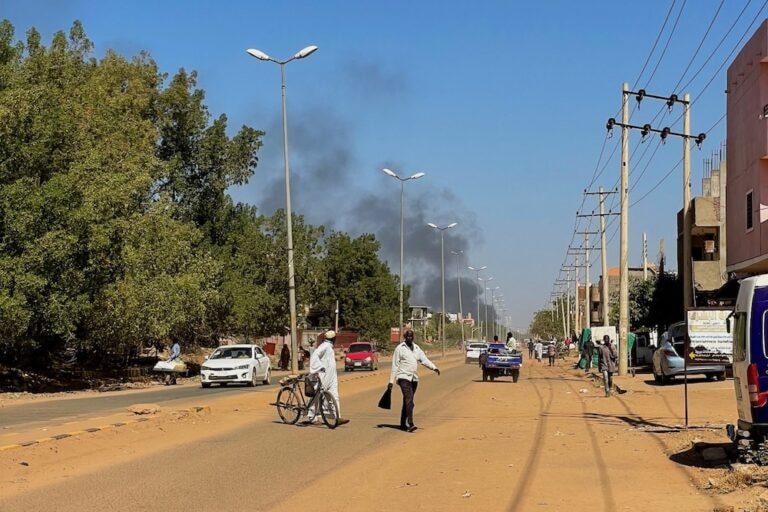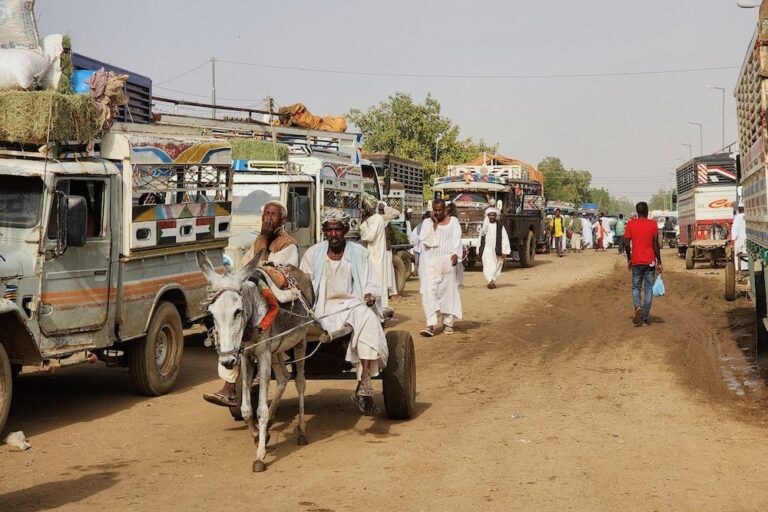Reporters Without Borders and Sudanese lawyer and parliamentarian Salih Mahmoud Osman, winners in 2005 and 2007 of the Sakharov Prize for Freedom of Thought, have made a plea for amendments to be made to a harsh draft law on the written press currently going through parliament.
(RSF/IFEX) – Reporters Without Borders and Sudanese lawyer and parliamentarian Salih Mahmoud Osman, winners in 2005 and 2007 of the Sakharov Prize for Freedom of Thought, have made a plea for amendments to be made to a harsh draft law on the written press currently going through parliament.
The proposed law provides for heavy fines of up to 50,000 Sudanese pounds (approx. US$21,500) against “offending” publications and journalists without detailing what offences would be punished. It also allows the National Press and Publication Council (NPPC), whose independence is not guaranteed, the power to shut down newspapers.
“The law in its current form is unacceptable. It does not conform to the interim constitution and will form a serious impediment to the conduct of free and fair elections in 2010”, Salih Mahmoud Osman said.
“The state of press freedom in Sudan is already worrying and the adoption of this draft law in its current form would constitute a very serious step backward. Journalists must be allowed to do their job freely, without the threat of heavy fines and protected by a fair legal framework. We offer our firm support to Sudanese journalists and urge Members of Parliament to amend this draft law”, Reporters Without Borders added.
Around 50 Sudanese journalists protested against it in front of the Parliament in Khartoum on 19 May 2009, in a peaceful two-hour demonstration in which they brandished banners saying “A free press or no press”. The Sudanese Journalists’ Network said that the draft law would limit free expression and was contrary to the interim Constitution by denying journalists the freedom to gather news and information. In particular, the law undermines the protection in article 39 of the Bill of Rights, which provides that: “[e]very citizen shall have an unrestricted right to the freedom of expression, reception and dissemination of information, publication, and access to the press.”
In parliament, the draft law has been subject to vigorous debate. A number of parliamentarians, including Mr. Osman in his position with the Committee on Legislation and Justice, have been pushing hard to see passage of a more progressive press law.
Media freedom in Sudan has been deteriorating over the last year and a half and the signing of the CPA. Two foreign journalists, Tunisian Zouhir Latif, and Canadian-Egyptian Heba Aly, have been expelled from the country since the start of 2009. Publications are subjected to relentless prior censorship. The government has for example attached a security officer to each newspaper, who reviews content and decides whether or not the paper can issue. Reporters Without Borders placed a column headlined, “For the good of the country stop censoring” in the Sudanese press on 28 November 2008. “Censorship is useless because it is powerless against reality,” the organisation said.
Reporters Without Borders released a report in April 2007 after a fact-finding visit, “Darfur: An investigation into a tragedy’s forgotten actors”, condemning blacklisting of media and individual journalists on the part of the Sudanese authorities and describing in detail the numerous official obstacles put in place by the government to ensure a permanent stranglehold on the foreign press.


